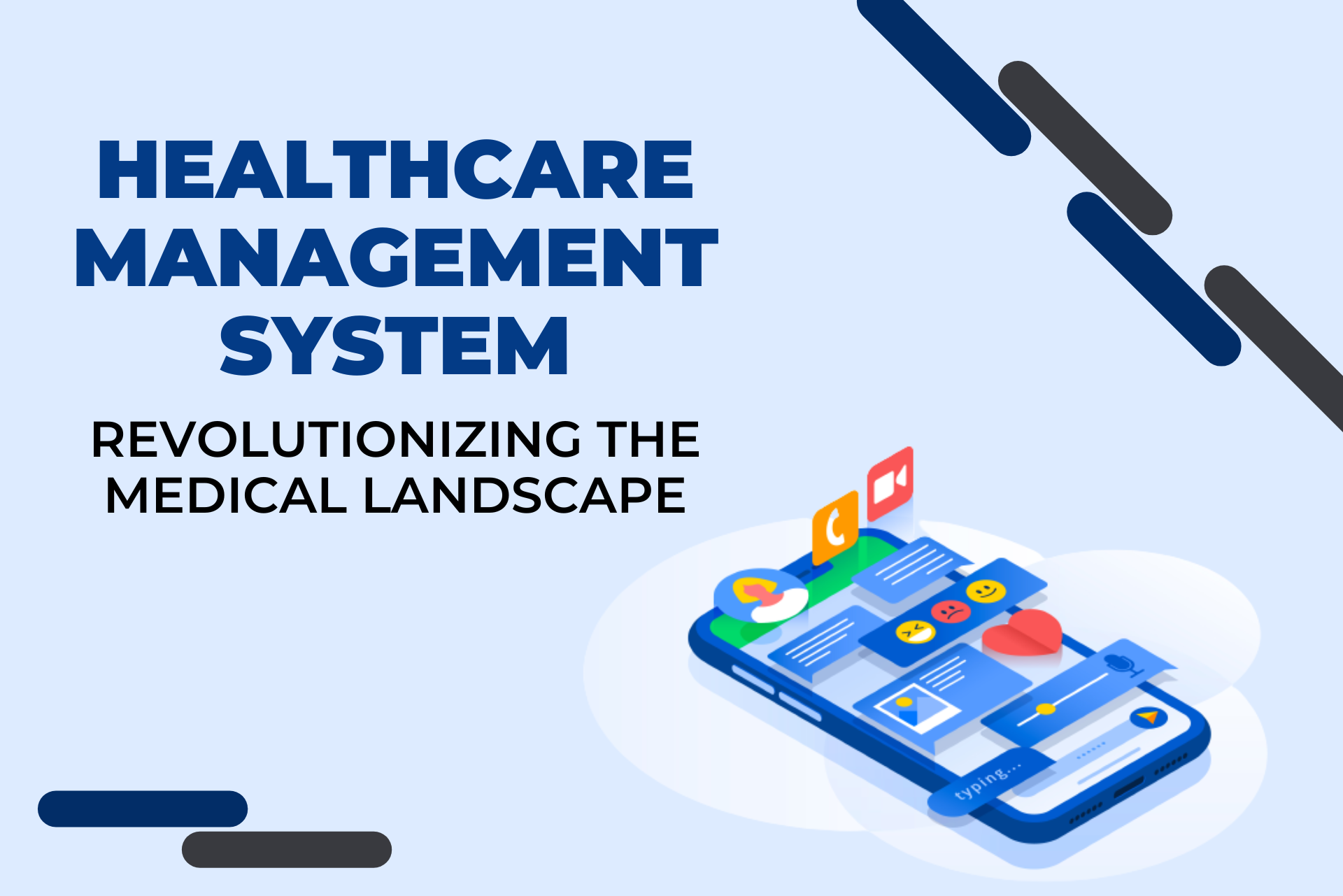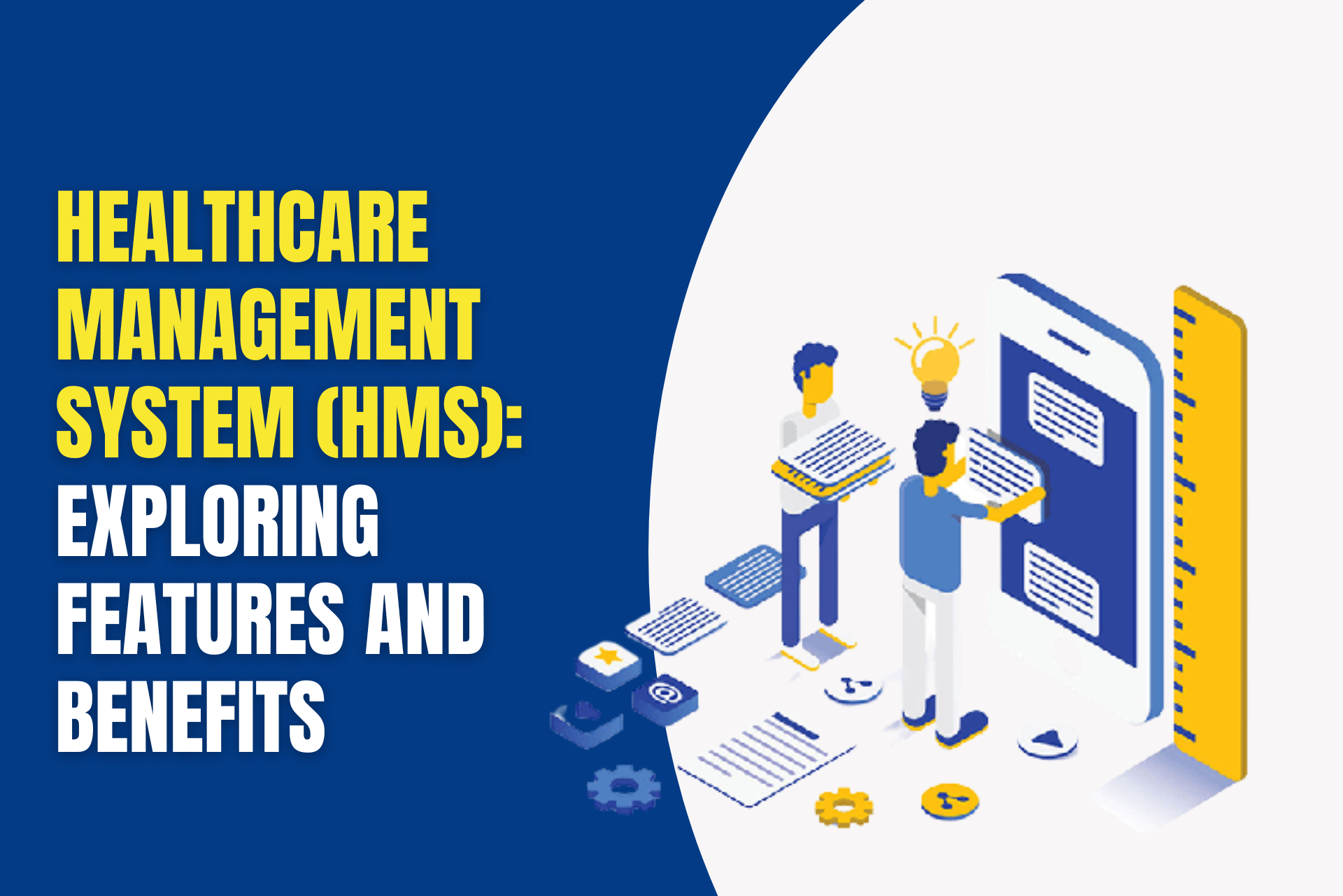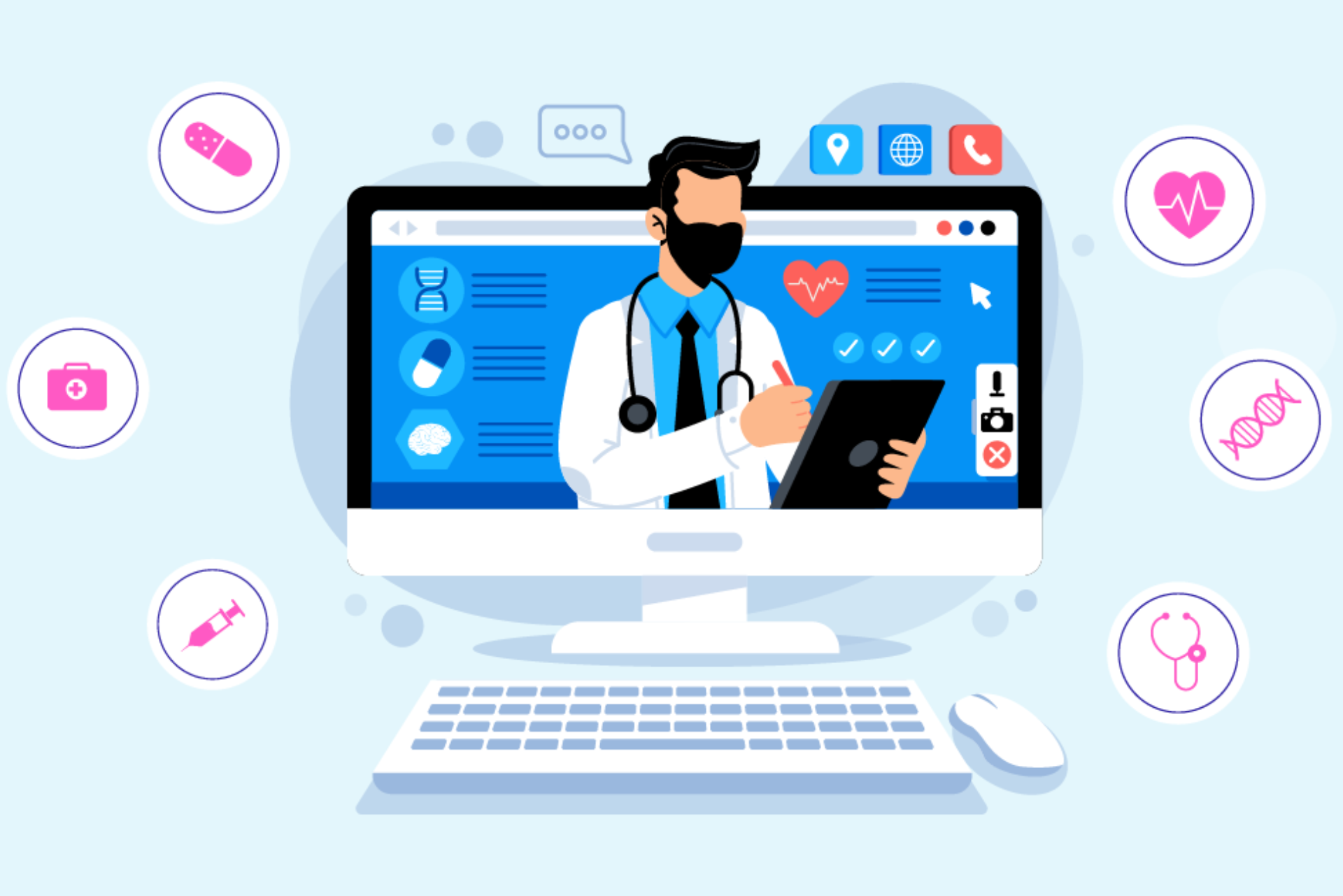Healthcare Management System: Revolutionizing the Medical Landscape
In today’s rapidly evolving healthcare landscape, the efficient management of healthcare systems has become paramount. With the advent of technology and increasing patient demands, healthcare management systems have emerged as a game-changer. These systems not only streamline administrative processes but also enhance patient care, ultimately leading to better healthcare outcomes. In this comprehensive article, we will delve deep into the world of healthcare management systems, exploring their significance, components, implementation challenges, and future prospects. Join us on this enlightening journey through the intricacies of healthcare management systems.
Understanding the Essence of Healthcare Management
Healthcare management is a multifaceted discipline that involves overseeing the planning, coordination, and delivery of healthcare services. It encompasses a wide array of functions, including patient care, financial management, human resources, and regulatory compliance. In today’s complex healthcare ecosystem, effective management is essential for healthcare organizations to thrive.
The Role of Technology in Modern Healthcare
The healthcare sector has witnessed a profound transformation driven by technological advancements. From electronic health records to telemedicine, technology has become an integral part of healthcare delivery and management. In this section, we will explore how technology has reshaped healthcare management.
Components of Healthcare Management Systems
Electronic Health Records (EHR)
Electronic Health Records, commonly referred to as EHR, have revolutionized the way patient information is stored and accessed. In the digital age of healthcare, EHR systems serve as the backbone of modern medical practice. These systems facilitate the seamless transition from traditional paper records to electronic formats, offering numerous benefits to healthcare providers and patients alike. EHR systems have become an integral part of healthcare management, facilitating the delivery of patient-centered, data-driven care. They have significantly contributed to the digitization of healthcare and have the potential to continue transforming the industry in the years to come.
Practice Management
Practice management software plays a pivotal role in streamlining administrative tasks in healthcare settings. It serves as the backbone of efficient healthcare operations, enabling medical practices to run smoothly and deliver high-quality patient care. Key components and functions of practice management software include appointment scheduling, billing and invoicing, patient registration, electronic health records (EHR) integration, inventory management, reporting and analytics, insurance verification, patient communication, security, compliance, and revenue cycle management (RCM) integration. Practice management software enhances the overall patient experience by reducing administrative hassles and enabling healthcare providers to focus on delivering exceptional care. It is a crucial component of modern healthcare management systems, contributing to efficient medical practice operations.
Revenue Cycle Management (RCM)
Revenue Cycle Management (RCM) in healthcare is the process of managing the financial aspects of patient care. It encompasses everything from verifying patient insurance and capturing charges to submitting claims and ensuring timely payment collection. Effective RCM is essential for the financial health of healthcare organizations, ensuring that they receive proper compensation for the services provided. RCM software and systems streamline these complex processes, reducing billing errors, minimizing claim denials, and improving overall revenue. In an era of evolving healthcare payment models, robust RCM solutions are vital to the sustainability of healthcare practices and facilities.
Patient Portals
Patient portals have become a vital tool for engaging patients in their healthcare journey. These secure online platforms allow patients to access their health records, schedule appointments, communicate with healthcare providers, and view test results. Patient portals empower individuals to take control of their health, enhance communication with their healthcare team, and make informed decisions about their care. Additionally, they contribute to improved patient satisfaction and compliance with treatment plans, ultimately leading to better health outcomes.
Telemedicine Integration
Telemedicine, the remote delivery of healthcare services, has experienced remarkable growth in recent years, especially in the wake of the COVID-19 pandemic. Healthcare management systems now integrate telemedicine solutions, expanding access to care for patients in various locations. Telemedicine offers benefits such as reduced travel time, improved access to specialists, and increased convenience for patients. Integrating telemedicine into healthcare management systems is a forward-looking strategy that aligns with the evolving landscape of healthcare delivery, emphasizing patient-centric care and accessibility.
Benefits of Implementing Healthcare Management Systems
Improved Efficiency and Productivity
One of the primary advantages of healthcare management systems is their ability to streamline operations and boost productivity. These systems optimize workflows by automating tasks such as appointment scheduling, billing, and patient data management. Healthcare providers can access patient records more efficiently, reducing administrative burdens and enabling them to focus more on patient care. By eliminating manual processes and reducing paperwork, healthcare management systems free up valuable time and resources, ultimately enhancing the efficiency and productivity of healthcare organizations.
Enhanced Patient Care
Healthcare management systems are designed with a central goal in mind: to enhance patient care. These systems improve patient outcomes by ensuring that healthcare providers have quick and secure access to patient information, treatment histories, and diagnostic data. This timely access to critical data enables more informed decision-making, reduces medical errors, and enhances patient safety. Additionally, patient engagement tools, such as secure communication and online appointment scheduling, empower patients to actively participate in their care, leading to higher satisfaction and better overall healthcare experiences.
Cost Savings
Efficiency in healthcare management translates directly to cost savings. By automating repetitive administrative tasks, reducing billing errors, and improving the accuracy of claims submissions, healthcare management systems help organizations optimize their revenue cycles. Moreover, streamlined operations reduce the need for excessive paperwork, physical storage space, and manual record-keeping, all of which contribute to cost reductions. As healthcare providers and organizations operate more efficiently, they can allocate resources more effectively, ultimately achieving significant cost savings.
Regulatory Compliance
Compliance with healthcare regulations is non-negotiable in the healthcare industry. Healthcare management systems play a crucial role in assisting organizations in adhering to the complex web of healthcare laws and standards. These systems incorporate built-in compliance features, ensuring that patient data is handled securely and in accordance with regulations such as HIPAA. By automating compliance processes, healthcare management systems mitigate the risk of legal and regulatory violations, helping organizations avoid costly penalties and reputational damage.
Challenges in Implementing Healthcare Management Systems
Data Security Concerns
Implementing healthcare management systems raises significant data security concerns. The sensitive nature of medical information necessitates robust safeguards to protect patient data and ensure compliance with strict data protection regulations, such as HIPAA. Healthcare providers must address data encryption, access control, and secure data storage to mitigate the risk of data breaches and unauthorized access, thereby enhancing the overall security of their healthtech solutions.
Integration Challenges
Integrating new healthtech into existing healthcare ecosystems can be a complex endeavor. The multifaceted nature of healthcare infrastructure often poses hurdles during implementation. These challenges include ensuring seamless interoperability between different systems, minimizing disruptions in workflows, and ensuring data continuity. Organizations must carefully plan and execute integration strategies to ensure the successful adoption of healthcare management systems, optimizing their medical software’s performance.
Staff Adoption Resistance
Change isn’t always met with open arms, and healthcare professionals may initially resist adopting new healthtech systems. To mitigate staff resistance, organizations can invest in comprehensive training programs that empower staff members to become proficient with the new technology. Involving staff in the decision-making process and addressing their concerns can also encourage a smoother transition to modern healthcare management solutions, improving overall patient care.
Initial Cost Management
The initial financial outlay for implementing healthcare management systems can be significant. However, it’s essential to recognize that the long-term benefits often outweigh the upfront expenses. To manage the financial aspect of implementation, organizations can explore cost-effective solutions, consider potential return on investment (ROI), and strategically allocate resources. The improved efficiency, streamlined operations, and cost savings achieved through healthcare management systems can ultimately lead to significant long-term financial gains for healthcare providers.
Choosing the Right Healthcare Management System
Assessing Your Organization’s Needs
Selecting the appropriate healthcare management system is a critical decision that begins with a comprehensive assessment of an organization’s unique requirements. This process involves evaluating the specific needs of your healthcare facility, including patient volume, specialty areas, and operational workflows. By conducting a thorough assessment, you can identify the features and functionalities that are essential for optimizing patient care and administrative efficiency, ensuring that the chosen healthcare management system aligns seamlessly with your organization’s goals.
Vendor Selection Criteria
Choosing the right vendor for your healthcare management system is a decision that requires careful consideration. To assist in this crucial process, we provide a checklist of criteria to evaluate when selecting a healthcare management system provider. Factors such as vendor reputation, system scalability, data security measures, and ongoing support are vital considerations to ensure a successful partnership that meets your organization’s long-term needs.
Customization Options
Recognizing that every healthcare organization is unique, customization options play a pivotal role in tailoring management systems to specific needs. We explore the various customization possibilities available, from adapting user interfaces to integrating specialized modules. Customization empowers healthcare facilities to optimize workflows, enhance patient care, and align the system closely with their distinct operational requirements.
Change Management
Effectively managing change is pivotal for a smooth transition to healthcare management systems. This section outlines best practices for change management in healthcare settings, emphasizing the importance of clear communication, stakeholder involvement, and addressing concerns proactively. By fostering a culture of adaptability and collaboration, healthcare organizations can navigate the transition with minimal disruption.
Training and Education
Proper training and education are fundamental for maximizing the benefits of healthcare management systems. We explore how organizations can ensure their staff is well-prepared to use the system effectively. Training programs should cover system functionalities, data entry best practices, and security protocols, empowering healthcare professionals to make the most of their healthtech tools and provide superior patient care.
Continuous Evaluation
The implementation process doesn’t conclude once the system is in place; continuous evaluation and improvement are keys to long-term success. We delve into strategies for ongoing assessment, including performance metrics, user feedback mechanisms, and regular system audits. By consistently evaluating and fine-tuning healthcare management systems, organizations can adapt to evolving needs and continuously enhance patient care and operational efficiency.
The Future of Healthcare Management Systems
Artificial Intelligence and Machine Learning
The future holds immense potential for healthcare management systems, thanks to artificial intelligence and machine learning. The global Internet of Medical Things (IoMT) market is expected to experience a staggering growth from $30.79 billion in 2021 to $187.60 billion in 2028, at a CAGR of 29.5%. This remarkable growth is a testament to the increasing demand for IoMT solutions in the healthcare industry. The applications of IoMT in healthcare allow healthcare providers to monitor patients remotely, reduce costs, and improve patient outcomes.
Interoperability and Data Sharing
Interoperability has become a prominent concept in healthcare, and it involves the seamless exchange of data between various healthcare systems and providers. This section delves into the importance of interoperability, emphasizing how it enhances patient care. When healthcare management systems can exchange data effortlessly, healthcare professionals gain access to comprehensive patient information, leading to better-informed decisions and improved care coordination. Interoperability is a pivotal component in modern healthcare, fostering collaboration among different healthcare entities and ultimately benefiting patient outcomes.
Patient-Centric Approach
The future of healthcare is undeniably patient-centric. Healthcare management systems are evolving to prioritize the needs and preferences of patients. This evolution encompasses various aspects, including patient engagement, access to health information, and shared decision-making. Patients are becoming active participants in their healthcare journeys, and management systems are adapting to empower them. From secure patient portals for accessing medical records to personalized treatment plans, the patient-centric approach is shaping the future of healthcare, ultimately leading to improved patient satisfaction and better health outcomes.
Innovations in Healthcare Management
Healthcare digital transformation has emerged as a powerful strategy with immense potential now. As statistics indicate (Source), many internet users seek health-related information and solutions online, driving a massive influx of searches daily. This growing interest in digital possibilities in medicine opens up numerous promising trends in the context of medical services.
Explore Healthcare App Development with BharatLogic
At BharatLogic, we are committed to advancing healthcare through cutting-edge technology. Our healthcare app development services are designed to empower healthcare organizations and professionals to deliver top-notch care efficiently. Whether you’re looking to create a telemedicine platform, a patient engagement app, or a robust EHR system, we have the expertise to bring your vision to life.
Why Choose BharatLogic?
- Expertise: Our team comprises seasoned developers, designers, and healthcare domain experts who understand the unique challenges of the industry.
- Custom Solutions: We tailor our app development services to match your specific needs, ensuring a seamless fit for your organization.
- Security: We prioritize data security and compliance with industry standards like HIPAA to safeguard patient information.
- Innovation: Stay at the forefront of healthcare technology with our innovative solutions that incorporate AI, blockchain, and more.
If you’re ready to take your healthcare services to the next level, visit BharatLogic today to learn more about our healthcare app development offerings.
Conclusion
The Transformative Power of Healthcare Management Systems
In conclusion, healthcare management systems have emerged as a transformative force in the healthcare industry. From improving efficiency and patient care to embracing cutting-edge technologies, these systems are reshaping the way healthcare is delivered and managed. As we look to the future, the potential for further innovation and improvement is boundless. Healthcare management systems are not merely tools; they are the foundation of a brighter, more efficient, and patient-centric healthcare landscape.
Frequently Asked Questions (FAQs)
Question: What is a healthcare management system?
Answer: A healthcare management system is a comprehensive software solution designed to streamline administrative processes in healthcare organizations, including patient care, financial management, and regulatory compliance.
Question:How can healthcare management systems benefit healthcare providers?
Answer: Healthcare management systems improve efficiency, enhance patient care, reduce costs, and ensure regulatory compliance. They empower healthcare providers to deliver better services.
Question:What are the key components of healthcare management systems?
Answer: The key components include Electronic Health Records (EHR), practice management, revenue cycle management (RCM), patient portals, and telemedicine integration.
Question:What are the challenges in implementing healthcare management systems?
Answer: Challenges can include data security concerns, integration issues, staff resistance, and high initial costs. Overcoming these challenges requires careful planning and execution.
Question:How can I choose the right healthcare management system for my organization?
Answer: Start by assessing your organization’s needs, establish vendor selection criteria, and explore customization options to tailor the system to your specific requirements.



